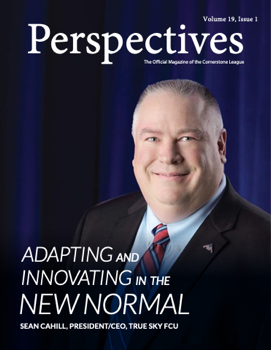
InfoSight Newsletter
Featured Post
New Help for Spotting, Avoiding, and Reporting Scams in Multiple Languages
Scammers speak your language. That's why the FTC now takes reports in multiple languages.
-
League InfoSight Highlight: Adverse Action Notices Artificial Intelligence
While technical evolution has always been a big part of our surveys in the past, this year we really want to focus more on identifying your pain points. -
Question of the Week
Are FCUs eligible for the Employee Retention Credit (ERC)? -
Council Day: Handle fraudulent electronic items under Reg E
Join us for Cornerstone’s first-ever virtual Council Day to gain cutting-edge knowledge and insights from a stellar lineup of experts and thought leaders, all from the comfort of your office—and FREE! -
Hike the Hill: Join us in our nation’s capital, Oct. 23–25
Now is the time to register for Cornerstone’s annual Hike the Hill in Washington, D.C., Oct. 23–25. -
Automated Cybersecurity Evaluation Toolbox
Additional information has been added to the Cybersecurity topic in the Security Channel of InfoSight for the Automated Cybersecurity Evaluation Toolbox (ACET). -
CFPB Issues Guidance on Credit Denials by Lenders Using Artificial Intelligence
The Consumer Financial Protection Bureau issued guidance about certain legal requirements that lenders must adhere to when using artificial intelligence and other complex models. -
Truth in Lending (Regulation Z) Annual Threshold Adjustments
The Consumer Financial Protection Bureau is issuing this final rule amending the official interpretations for Regulation Z, which implements the Truth in Lending Act (TILA). -
CFPB Report Finds College Tuition Payment Plans Can Put Student Borrowers at Risk
The Consumer Financial Protection Bureau issued a new report finding that students face risk when entering into agreements with colleges to spread the upfront cost of tuition into several, interest-free loan payments. -
NCUA Releases Q2 2023 State-Level Credit Union Data Report
The median growth rate in loans outstanding and membership at federally insured credit unions was positive over the year ending in the second quarter of 2023, while the... -
Question of the Week
Can a credit union use a credit report for a purpose other than initially declared?
Subscribe
Sign up to receive the weekly InfoSight Newsletter email. Existing subscribers can manage their subscription.

